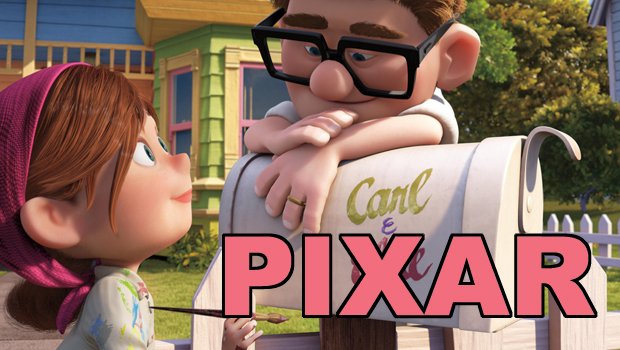Why the notion that games need photoreal graphics to tell better stories is backward nonsense, whatever 2K's boss says
Apparently we only have lots of shooters because graphics aren't good enough for anything else
A lot of nonsense gets talked in this industry. And a lot of it is best ignored. But sometimes you come across a statement so wrong on so many levels that it's like a delicately-balanced Jenga stack of wrongness, with so many multi-layered wrongs intricately holding each other in place that it's almost artistic in construction.
I don't really know where to start unravelling this one. But I'm going to try.
The statement, as it goes, comes from 2K boss Christoph Hartman. Discussing mainstream developers' penchant for falling back on action games and shooters as frequently as they do, Hartman explained his thinking to GamesIndustry International as thus...

Above: I suspect that Mr. Hartman might not have played all of his own company's games
"Recreating a Mission Impossible experience in gaming is easy; recreating emotions in Brokeback Mountain is going to be tough, or at least very sensitive in this country... it will be very hard to create very deep emotions like sadness or love, things that drive the movies. Until games are photorealistic, it'll be very hard to open up to new genres. We can really only focus on action and shooter titles; those are suitable for consoles now.
"To dramatically change the industry to where we can insert a whole range of emotions, I feel it will only happen when we reach the point that games are photorealistic; then we will have reached an endpoint and that might be the final console."

Above: "Christ, how wrong can you be?"
Weekly digests, tales from the communities you love, and more
I say again, wow. Now don't get me wrong. I love 2K. Like, really, seriously, embarrassingly, it-would-be-awkward-if-we-met-at-a-party-and-I-was-a-bit-drunk love 2K. I don't think any other single publisher has so gracefully balanced commercial success, polish and AAA sparkle with a consistent string of intelligent, artful, genuinely interesting games this generation. Bioshock, Bioshock Infinite, Borderlands, Mafia II, Spec Ops: The Line, The Darkness, The Darkness II, a brand new (proper, strategy-driven, non-FPS) XCOM... 2K as a publisher has put a special kind of smile on my face all through this gen. I've always been able to rely on them for the particular kind of good I want.
It is then ironic, that Hartman is so wide of the mark regarding that particular kind of good. Let me break his wrongness down.

1. His whole thesis hinges on the idea that action games and emotional storytelling are mutually exclusive occurrences. This is nonsense. Look at just a few of 2K's own games over the last few years. Look at Batman: Arkham City. Look at Red Dead Redemption. Look at Portal 2. And if you extend the concept to cinema you'll see how silly it really is. Look at Christopher Nolan's Dark Knight trilogy. Look at Inception. Look at District 9. Look at the 2006 version of Casino Royale. The idea that subject or genre matter dictates narrative treatment is a simplistic misconception. The emotional depth you can instil within any work comes from the quality of your writers, actors and narrative direction. No other factor is relevant.
2. The idea that human beings can only engage emotionally with a story if it is presented with realistic visuals is insulting both to the history of visual media and to human beings themselves. In fact so ludicrous is the notion that I can counter it with just one word:

That obvious example out of the way, let's look specifically at games. Ignoring the fact that gamers have been emoting our hearts and retinas out all over the place for years, in reaction to the likes of Shadow of the Colossus, Final Fantasy, Half-Life 2, and even GTA, some of the most affecting games of recent years have deliberately gone absolutely nowhere near photorealism.
Limbo. Braid. Bloody Journey. The visual style, presentation of game-world, and approach to game mechanics are irrelevant (unless you use the game mechanics as a storytelling device, but more on that in a second). Again it all just comes down to the artistry and narrative direction talent at your disposal. To say that photorealism is a deciding factor is just an excuse.

Above: A poignant rollercoaster of the full spectrum of human emotion. Not photorealistic
3. The whole argument comes dangerously close to championing the desperately regressive idea that games need to ape cinema in order to be affecting. As I've said many times in many different ways, and will many times again (starting right... about... NOW) that idea is not only wrong, it's lazy, out-of-touch, and utterly dangerous to the future health of games as a creative medium.
Long story short. Film didn't realise its full storytelling potential by copying theatre. Radio didn't realise its potential by copying novels. Novels didn't become such a powerful and eclectic artistic medium by simply putting cave paintings on paper (though somehow they did manage to achieve it without photorealistic visuals). Every medium has its own unique mechanics and language with which to affect its audience, both intellectually and emotionally, and to think that games are lacking enough in this area to require photorealistic graphics is either disrespectful to the medium or naive in the extreme in regards to its properties. Possibly both.
There. Done. And I got through all that without mentioning David Cage being wrong about things once.



